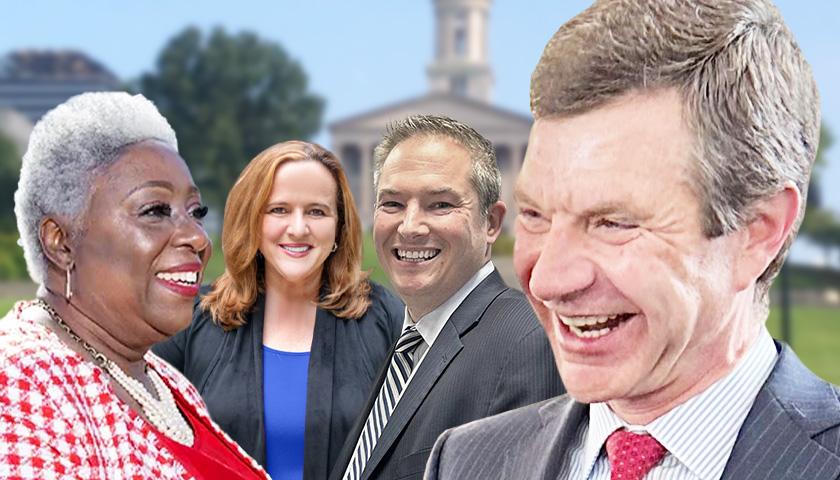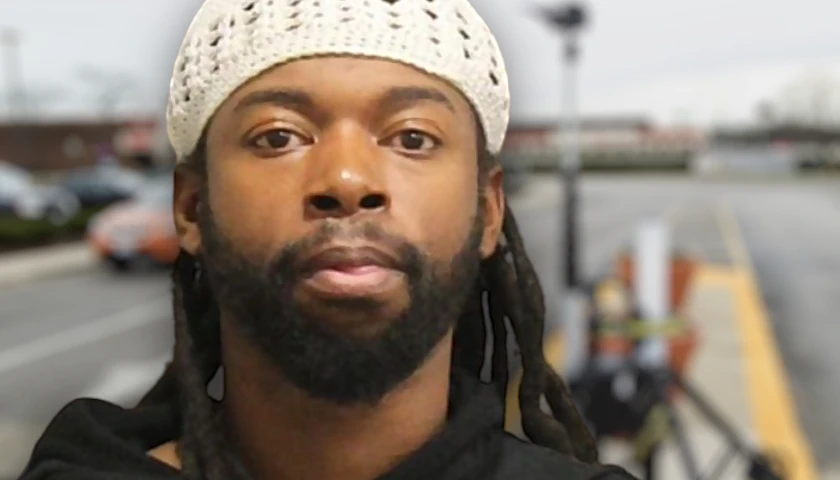A poll conducted in May on behalf of Tennesseans for Student Success by VictoryPhones, showed that Nashvillians prefer a mayoral candidate with a strong position on education and infrastructure. That quality slightly edged “positions on social issues” as the leading factor in who earned their vote.
In discussing education policy with Nashville mayoral candidates, The Tennessee Star found few variances between potential city leaders. All candidates supported Metro Nashville Public Schools and appreciated the past administration’s efforts to increase teacher pay. They all voice a commitment to ensuring that Metro Nashville Public Schools (MNPS) are among the best in the country. Outwardly, none are choice advocates.
However, further exploration and a recently published Nashville Public Education Foundation survey revealed some differences.
“Nashville can, and must, have the best publicly funded schools with the best-paid teachers producing the best results for all kids.” Alice Rolli told The Star, “Every school must operate, and be held accountable to, the belief that all children can learn because we know and we see in the results of publicly funded schools across our city – this is possible.”
Rolli pointed out that her late grandfather, father, and she are all Metro Nashville Public Schools graduates. Early in her career, she served as a public high school teacher.
“At the heart of high-quality schools are high-quality teachers. That means our administration is committed to ensuring our school system is welcoming and supportive of the safety and well-being of teachers,” Rolli said. “That means we will treat teachers and staff with respect and dignity and that we will honor the safety of teachers and staff equally with the safety of students.”
Matt Wiltshire is also a product of Nashville’s public schools. Having experienced Nashville schools as a student gives him a deeper perception of MNPS schools’ challenges. Wiltshire told The Tennessee Star, “The reality is that we’re asking our school system to solve a whole host of broader issues in our society–poverty, violence, hunger, trauma, and homelessness–while also educating kids who are bringing those challenges into the classroom.”
“I believe Nashville should have the very best public school system in America. To reach that goal we’re going to need to bring together the public sector, the private sector, and the nonprofit sector to align our goals, objectives, and efforts,” he added. “We need to provide additional support services for kids so that our teachers can focus on teaching and our kids can focus on learning in the classroom. That coordination requires leadership and the mayor is uniquely positioned to do that.”
Like Wiltshire and Rolli, Fran Bush attended Nashville schools as a child. She also served as the school board member representing District 6. Bush said, “If elected to be the next Mayor of Nashville, my educational priorities will be to continue to advocate for increased education funding from both local and state governments. Work to eliminate educational disparities and ensure that all students have equal access to quality education. Collaborate with educational experts, teachers, and parents to update and enhance the curriculum to meet the needs of the 21st-century workforce.”
Bush told The Star she would “prioritize competitive salaries and benefits to attract and retain talented educators. Foster strong partnerships between schools, parents, and the wider community.”
Tennessee State Senator Jeff Yarboro (D-Nashville) didn’t attend MNPS schools because he grew up a few hours west in Dyersburg. His children attend MNPS schools.
In his response to the Nashville Public Education Foundation survey, Yarboro said, “I believe the Mayor should lead an effort for Nashville as a community to develop a more comprehensive, consistent, and trusted platform for measuring school success and ensuring accountability. But because mandated testing occurs in 3rd through 8th grade, we have focused outsized attention on measuring incremental test score improvements between 3rd-4th, 4th-5th, 5th-6th, 6th-7th, and 7th-8th grades. That focus actually obscures our focus on our bigger-picture priorities and long-term strategies for success. Both media and policymakers often throw around educational statistics without a firm understanding of what’s being measured – and it’s impossible to orient student success around misunderstood metrics.”
As Nashville’s state senator, Yarboro has lobbied for increased state funding for schools while opposing the growth of choice options. When asked by The Tennessean about his views on education policy, Yarboro said, “Nashville needs a pre-school to post-secondary education strategy that holds a serious commitment to seeing all of our children reach their full educational potential.”
“To be certain, the mayor must work with MNPS to ensure adequate funding for our K-12 public schools, accountability standards trusted by both educators and parents, teachers who are respected and well-paid, and alignment of community investments and services to best support students,” he continued. “But a mayor must realize learning doesn’t begin when students begin kindergarten and success is not achieved when students graduate from high school. Over 80% of brain development occurs before children enter school, and the mayor should coordinate public sector, private sector, and nonprofit efforts to ensure kids are ready to learn when they start school. The Mayor should also focus efforts on the transition from high school to adulthood – maximizing successful entry and retention in post-secondary institutions and ultimately the workforce.”
State Senator Heidi Campbell (D-Nashville) shares similar views as her state senate associate.
She said, “Every child in Davidson County deserves access to a high-quality public education, regardless of where they live, the color of their skin, or how much money their parents earn.”
On her campaign website, she cites her record in the Tennessee General Assembly, where she championed efforts to improve teacher pay and to increase the number of reading interventionists, counselors, and school nurses across the state.
Two-term city councilman Freddie O’Connell has two children that attend MNPS. When asked by NPEF how he planned to ensure every student had access to a high-quality school, O’Connell responded, “Ensuring every student has access to a high-quality place to learn begins with what I like to call the ‘pothole’ approach. Rather than paving every road in the county north to south, we send our crews to the areas that need our attention most—and we need to do the same with our public schools.”
“For a long time, investment in education was purposefully unequal. Then, it became about investing more equally and strategically,” he added. ” Now, we have to invest in equity and make sure that we are bringing those areas that are exhibiting disparities in both the resources and funding coming in and the results coming out. As mayor, my capital budget will reflect that priority, whether a community needs attention because the redline is still visible, or because overdevelopment has changed the basic structure and quality of the neighborhood.”
He said he promised to work to create a multi-year plan to ensure that Nashville teachers remain the best paid in the state.
If elected, fellow Councilman Sharon Hurt promises to focus on early childhood literacy and mental health issues. Providing workforce housing for school teachers and staff so they can live in the neighborhoods where they work is part of her vision. Hurt promises to fund teacher, substitute, and longevity pay fully.
Natasha Brooks is a professional educator with extensive experience in public, private, and homeschool sectors. She, too, supports increased salaries and stipends for teachers. She said. “Public Education starts bests with the discussion of recruitment of great teachers with Great Salaries – starting salaries $70,000 per year. Working with the Davidson County School Board to recruit teachers (especially Minority And Bilingual Candidates) will be one of the top priorities with the Mayor’s Office.”
Stephanie Johnson is a former student of MNPS. She said, “In my first 90 days as mayor, I will be visiting over 100 metro schools with the intent to listen, which I have already begun during my campaign. I will spend time in these schools working to learn about the inequities that exist and trials that we as a community must work to overcome.”
“Once I have finished my visits and the bottom 5 schools have been identified, I will work alongside the schools, board members, and nonprofits that serve those schools to ensure they are no longer at the bottom. I will work year to year to ensure our budget can maintain the same level of service in our schools, including unforeseen expenses, mandatory costs, and step increases for employees,” Johnson said. “In addition, our newly implemented city-state policy team will be working to ensure community engagement when the state is working out funding for Metro Schools through the Tennessee Investment in Student Achievement funding formula.”
“There is nothing more important as a city than investing in our children and their futures. As a city, we’re spending nearly 60% more per student than we were ten years ago, yet we’re not achieving the outcomes we aspire to,” businessman Jim Gingrich observes. “Nashville ranks in the bottom of large US cities in intergenerational economic mobility, meaning if you’re born poor, you’re more likely to remain poor. Education is the key to changing these statistics. Every generation deserves the opportunity to build a better life.”
He told NPEF, “At a minimum, I am committed to improving reading scores by 2% per year, particularly in third grade, through a comprehensive five-year strategic plan jointly developed with the superintendent and board.”
When asked for her vision of public education in Nashville, Vivian Wilhoite told NPEF, “I would like for public education in Nashville to help every student achieve career readiness for the best jobs that Nashville has to offer.”
On June 26 from 6-7:30 p.m., the Nashville Child and Youth Collaborative, of which the Nashville Public Education Foundation is a member, is hosting a mayoral candidate forum called For Nashville’s Future about the issues facing Nashville’s young people. The event will take place at the Family and Children’s Service Honey Alexander Center and is free to the public.
– – –
TC Weber is a reporter at The Tennessee Star and The Star News Network. He also writes the blog Dad Gone Wild. Follow TC on Twitter. Email tips to [email protected]. He’s the proud parent of two public school children and the spouse of a public school teacher.
Photo “Jim Gingrich” by Jim Gingrich. Photo “Sharon Hurt” by Sharon Hurt. Photo “Jeff Yarbro” by Sen. Jeff Yarbro. Photo “Heidi Campbell” by Senator Heidi Campbell. Background Photo “Tennessee Capitol” by Kayfishup. CC BY-SA 3.0.






Very simple, they suck. MNPS is producing the dumbest kids in the state.